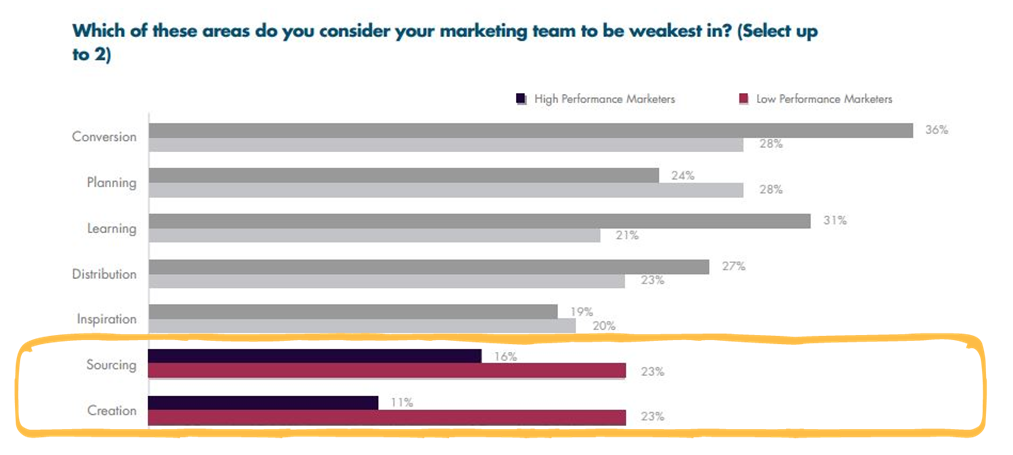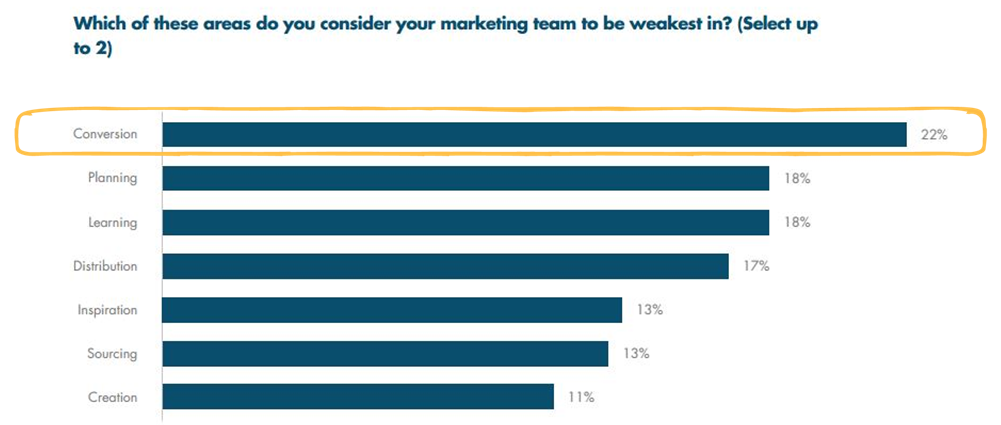Conversions are the caliber by which we measure marketing success, but it’s a chronic weakness for most teams. If you feel like you could strengthen your ability to drive and measure conversions, you’re not alone. According to recent Percolate data, 22 percent of marketing managers admit their teams struggle with conversions.
This pain point isn’t exclusive to ‘weak’ marketers. (Check out this post for a complete breakdown of what traits make teams strong or in need of improvement.) Conversion struggles plague both high- and low-performance marketers. Interestingly enough, 36 percent of marketers who are doing much better than average report this is the top area their teams need to improve, compared with 28 percent who are considered below average.
Why do high-performance marketers struggle with conversions?
It’s likely that top notch marketing teams list conversions as a challenge because they’ve already got the basics like sourcing, content creation and idea inspiration under control.

On the flip side, 23 percent of low-performance marketers say creation and sourcing are some of their major weaknesses (28 percent list conversions, too). This group is looking at the end-to-end process of content marketing as a challenge, whereas companies with more refined processes can start to hone in on specific components that need attention. It’s natural to focus on results, ask if they could be more successful and how.
How marketers can strengthen their bottom lines
It doesn’t matter where you fall on the spectrum of high or low performance, results are critical for marketing efforts. To be successful, you need to know what goals you want to achieve from the very start and build a strategy that positions you to reach AND measure them. This requires you to:
- Decide what a conversion means for your brand – Is it resource download, a demo request or a sale?
- Set up analytics to track conversions – Establish goal conversion tracking to measure destination URLs or event tracking
- Analyze content analytics reports – See what content campaigns correlate with conversions.
- Repeat what drives results – Replicate successes to generate more conversions.
Check out this blog post for an in-depth guide to setting up Goal Tracking for conversions.
It will be harder to backtrack and try to improve your conversion rate when you didn’t know what to measure or how to measure against your goals the first place. However, conversions don’t have to be a point of contention – they should be empowering.
Moving forward, the strongest marketers will be those who cozy up to conversions and hard metrics as a way to demonstrate their team’s value and provide the business with the most important results.






